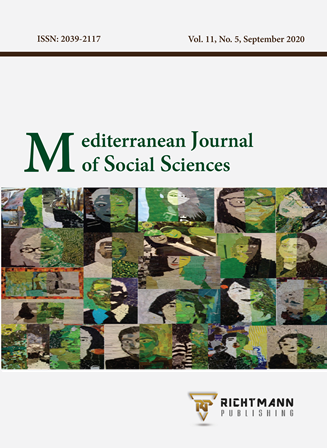Assessing the Impacts of Globalization on Kwasi Wiredu’s Conceptual Decolonization in African Philosophy
DOI:
https://doi.org/10.36941/mjss-2020-0054Abstract
There are two fundamental ideas in which Kwasi Wiredu apply his conceptual decolonization. These to him are two complementary things that are both negative and positive. In the negative sense, Wiredu’s conceptual decolonization is the process that seeks to avoid and reverse “through a critical self-awareness the unexamined assimilation” in the thoughts of contemporary African philosophers those conceptual frameworks that are found in western or other philosophical cultures that have influenced African ways of life and thought. On the positive side, conceptual decolonization to Wiredu involves the exploitation of the vast “resources” of African conceptual frameworks in philosophical exercises or reflections on all the basic and crucial problems of contemporary philosophy. This establishes Wiredu’s conceptual decolonization on historical foundation of the African problems through the process of colonialism. This historical trend in Africa has significant impacts on the whole of African system, which include education, politics, culture, science, technology, religion, culture, language, and thought patterns. These suggest that African contemporary systems are greatly influenced through the means of language, religion and politics; and the methods of science and technology. However, a critical reflection on these indicate that Wiredu’s conceptual decolonization is distinctly opposed to the principles and tenets of globalization as a socio-political concept that is inspired by economic ideas, which are anchored on technological innovativeness and development. This explains the fact that globalization is driven by technological revolutionary and innovative ideas that are powered and energized by information, computer technology (ICT). This process thrives to link the world to a common system of circuit from where all knowledge and activities in the world can be viewed and known. This characteristically shrinks the world to what has been described as “global village” in an integrative pattern. These clearly in diverse manners promote interculturalism and interdependence to the extent that no nation or continent can be seen as an island. The world through globalization has been fused in a way that Wiredu’s conceptual decolonization has been rendered a philosophical failed project with no practical and epistemological relevance. In this paper therefore, effort will be made to assess the impacts of globalization on Wiredu’s conceptual decolonization. We submit that globalization has a more pragmatic, socio-economic and political allures to prevent Wiredu’s conceptual decolonization from making any positive impact on African philosophy. Our approach here will be analytic and speculative.
Downloads
Downloads
Published
Issue
Section
License
This work is licensed under a Creative Commons Attribution-NonCommercial 4.0 International License.











